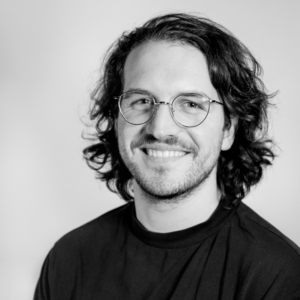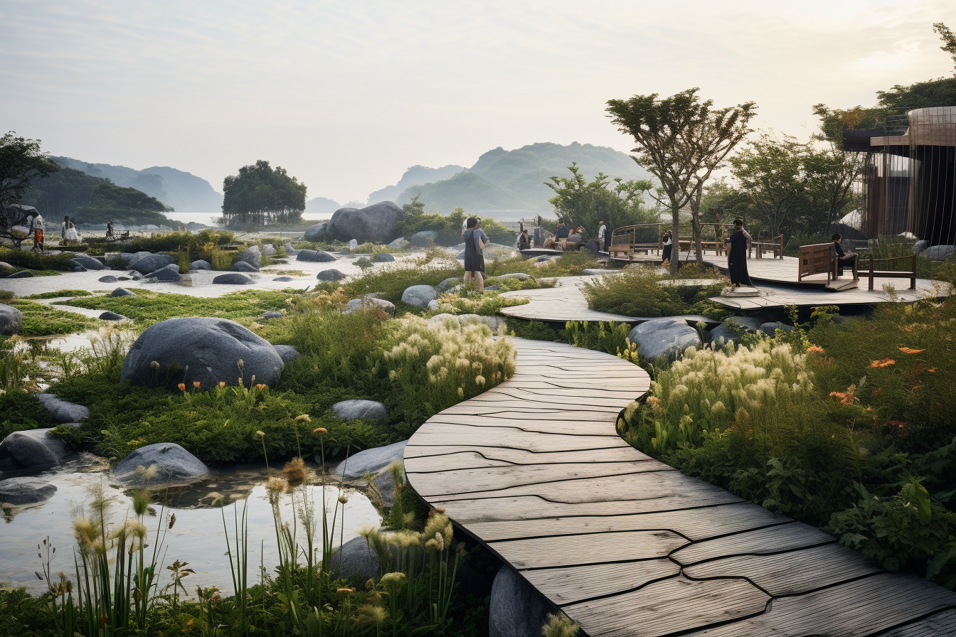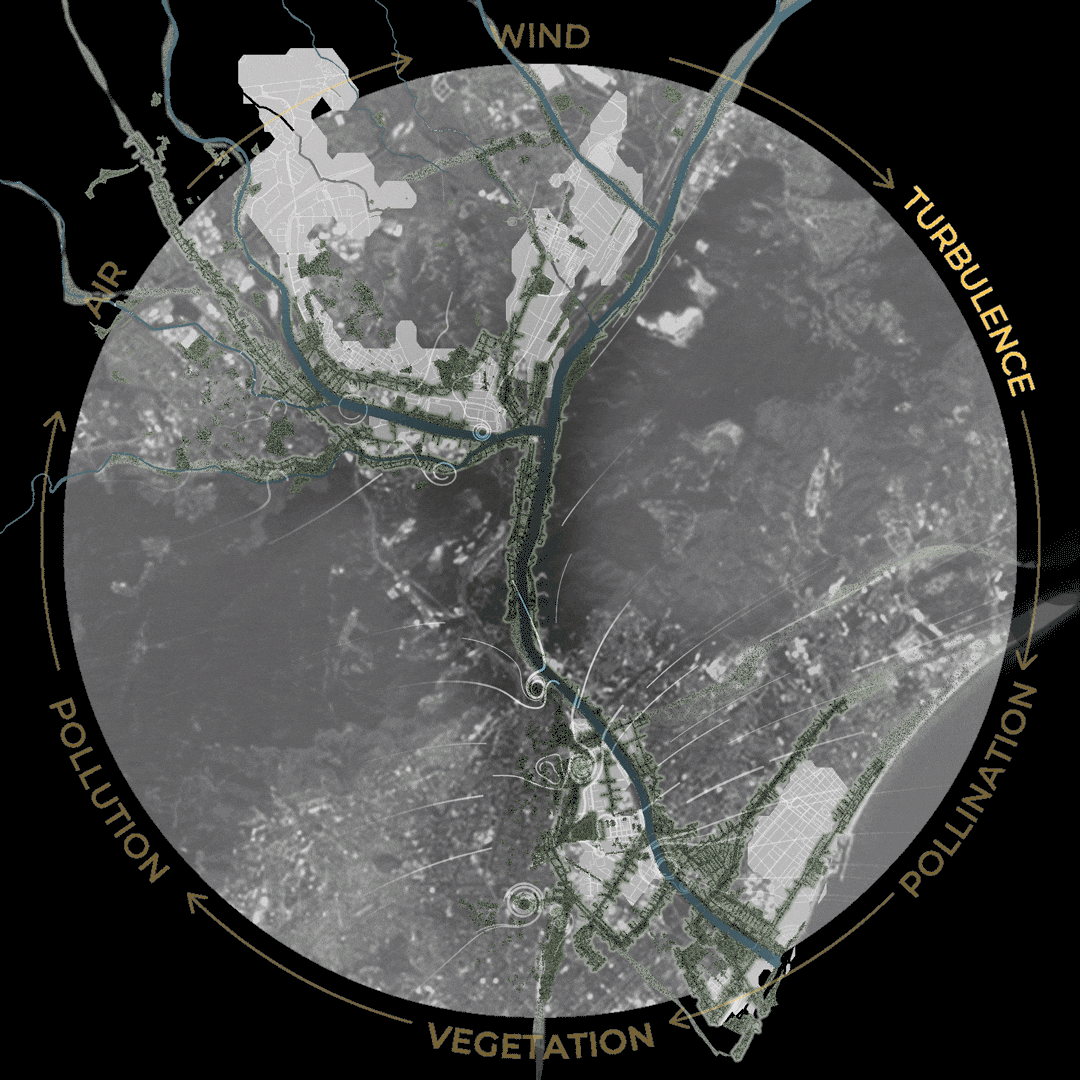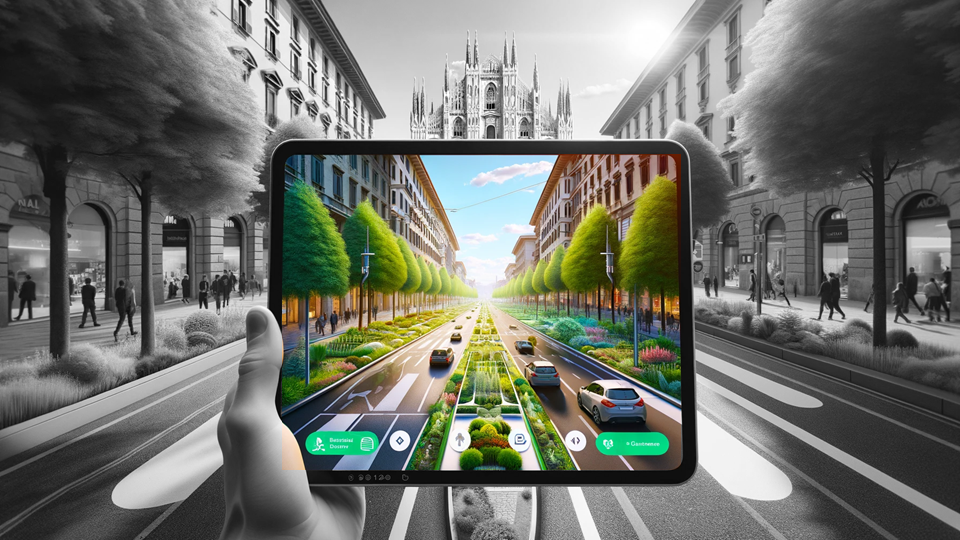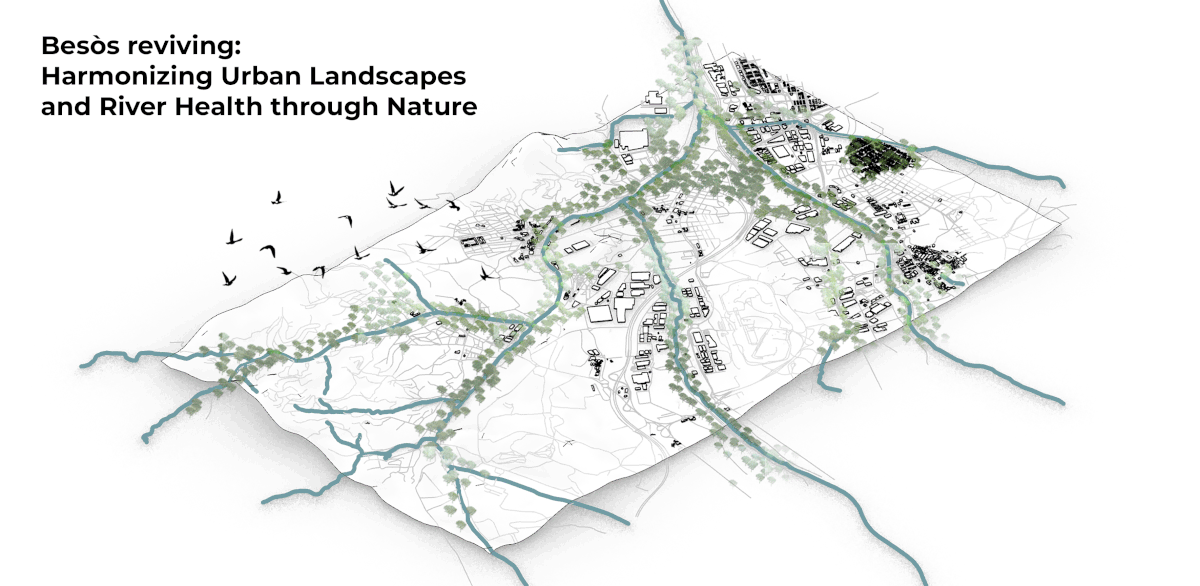
photo credits: Master in City & Technology 2020/21, Internet of Buildings, Faculty: Eduardo Rico, Mathilde Marengo Assistants: Iacopo Neri, Raul Bielas, Students: Leyla Saadi, Marta Maria Galdys, Sridhar Subramani & Ivan Reyes Cano
Description
Urbanisation today represents the main threat to fine ecological balances. Cities and their design and planning consequently become key in addressing such issues, in order to maintain the well being of all living systems.
Despite the fact that the relevance of restoring green and blue infrastructures, for the mitigation of human impacts over natural systems, is certain and institutionalised – The Paris Agreement, SDG 14 and 15, the European Green Deal -, the pathways to reach such an objective are not always clear. Moreover, these approaches are often developed in order to counteract the impacts of anthropogenic pressures on the ecology, rather than empowering ecology to actively adapt within today’s highly urbanised world, becoming an active partner within the definition of this transition. This is highlighted by the fact that the great majority of today’s legal systems only protect the rights of humans, often considering nature as one of the resources to be exploited “for the exclusive benefit of our own species.” (Thackara, 2015).
Within the realm of urban design and planning this condition raises the essential question of how nature and ecology can, there too, have an operative voice?
Working from a more than human perspective we challenge the concept of the end user, where the human and its needs are no longer at the centre of design, but rather design becomes the vehicle with which we as human designers can defend the rights of nature, specifically water, air and soil. The qualities and needs that are at the heart of the more than human cities are those of these elements, that of course, in turn, become companions in safeguarding the ecology within highly urbanised environments.

photo credits: Master in City & Technology 2022/23, Internet of Cities, Faculty: Mathilde Marengo, Eduardo Rico, Iacopo Neri, Assistant: Adriana Aguirre Such, Students: Hiranya Ganatra, Julia Thomas, Vasiliki Bakomichali
We argue that humans would do well if we could borrow from this approach and begin to think of our civilization at the service of these natural elements, rather than these elements at the service of humans in the form of resources. Hence a network of companionship between species emerges, where these act by helping each other and where utilitarian actions such as feeding, cleaning or purifying each other evolve into other forms of affection over time. Cities become spaces of exchange and these in turn give meaning and life purpose to its components. Companionship includes circularity, ecology and sympathy into a unified form of engaging with life and the environment we live in.
We propose a design brief exploring these ideas in Barcelona’s Besós and Milan’s Linate, where the projects revolve around finding strategies that defend the rights of nature and allow all living species to form bonds at various levels. Students shall explore spatial strategies across scales that allow cities to become places where all living systems can thrive and bring unknown, surprising and progressive forms of urbanism. The students will make proposals exploring the tools and discourses provided by the course, trying to span various scales and critically articulating a discourse about the link between nature, city and human habitation within the context of climate change adaptation.

photo credits: Master in City & Technology 2020/21, Internet of Cities, Faculty: Mathilde Marengo, Eduardo Rico, Assistants: Iacopo Neri, Raul Bielas, Students: Adriana Aguirre Such, Simone Grasso, Matteo Murat, Riccardo Palazzolo Henkes





